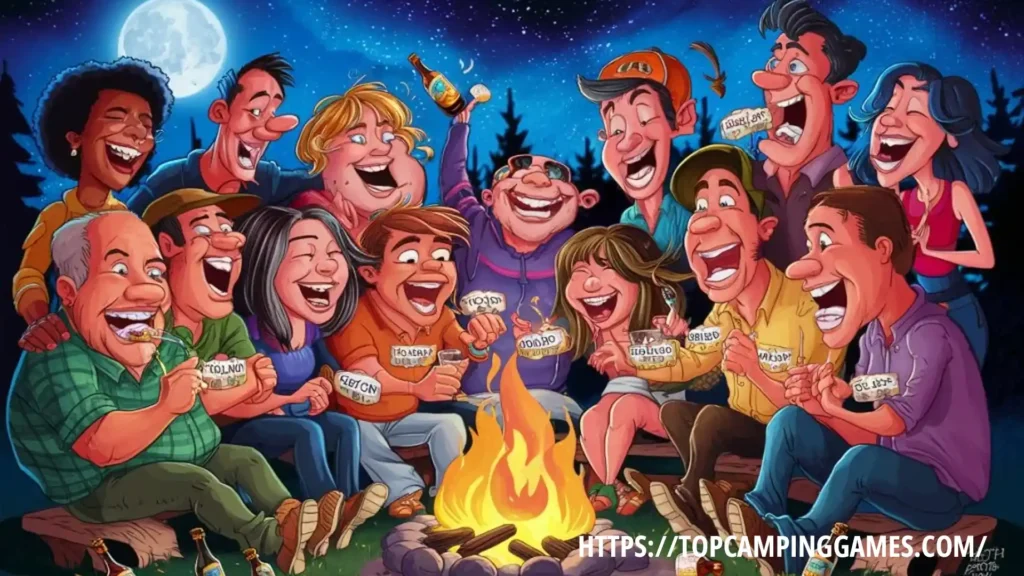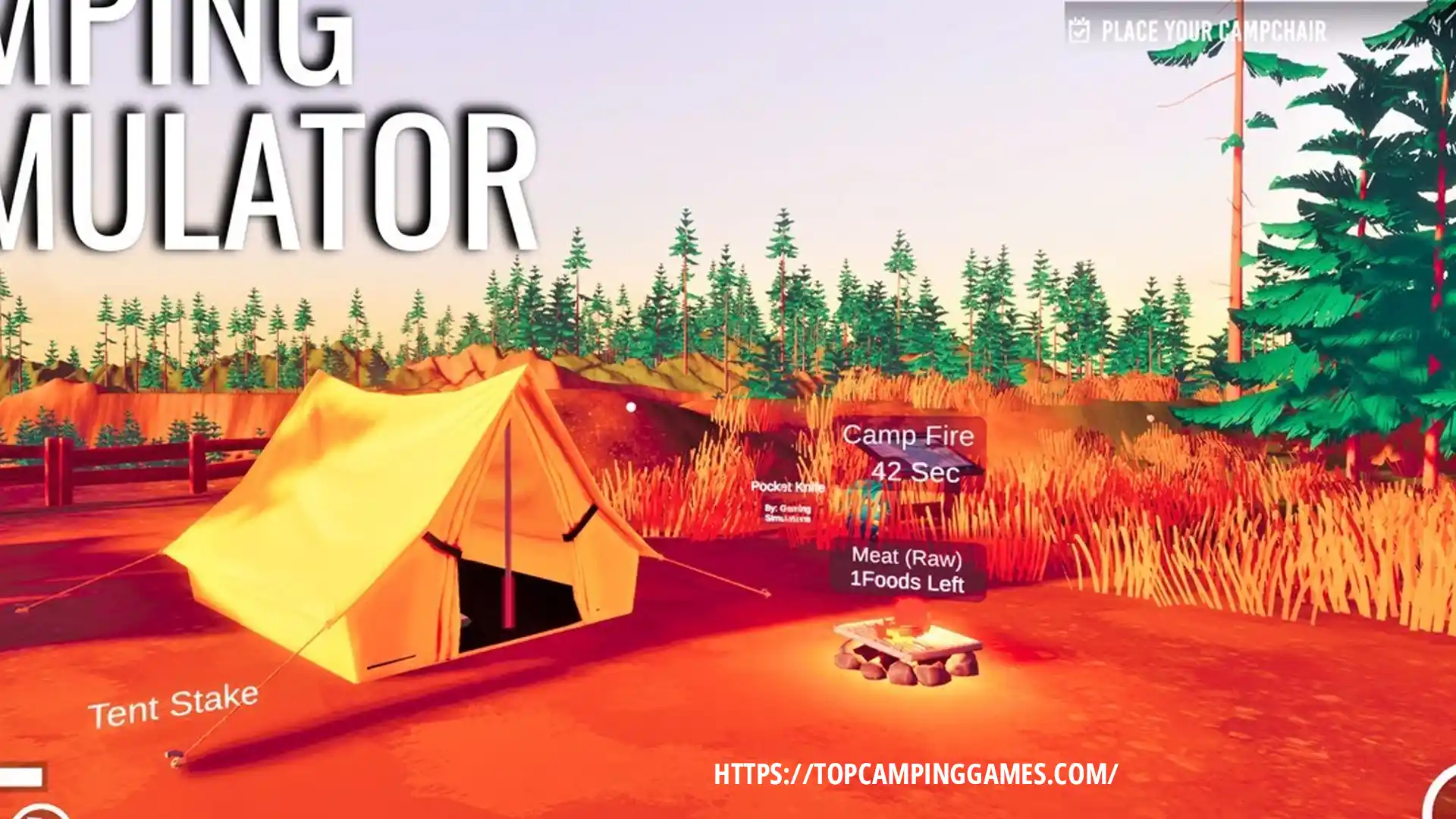Introduction
In the world of gaming, terminology often evolves, and certain phrases take on unique meanings within specific contexts. One such term is “camping.” While it may evoke images of enjoying the great outdoors, in gaming, camping refers to a particular strategy that can spark both enthusiasm and frustration among players. This article delves into what camping means in games, the strategies involved, its advantages and disadvantages, and the ongoing debate surrounding this gameplay tactic.
What is Camping in Gaming?
Camping is a gameplay strategy where a player positions themselves in a specific location and remains there for an extended period, often to ambush opponents or gain an advantageous vantage point. This tactic is prevalent in various genres, including first-person shooters (FPS), battle royale games, and multiplayer online battle arenas (MOBAs).
Key Characteristics of Camping:
- Stationary Positioning: Campers typically choose a location that offers cover and visibility, allowing them to observe and attack unsuspecting opponents.
- Patience: The strategy often requires a high level of patience, as campers may wait for long periods for the right opportunity to strike.
- Ambush Tactics: Campers aim to surprise opponents, catching them off guard and maximizing their chances of securing a kill or gaining a strategic advantage.

Historical Context of Camping in Games
Camping has roots in early video games, particularly in the FPS genre, which emerged in the 1990s. Titles like Doom and Quake allowed players to engage in fast-paced combat, where the element of surprise was paramount. The mechanics of these games made it viable for players to find advantageous positions and wait for opponents to approach.
As multiplayer gaming evolved, so did the strategies employed by players. In games like Counter-Strike, camping became a recognized tactic as players learned to leverage map design, choke points, and positioning to control engagements. This historical context sets the stage for understanding how camping has evolved in modern gaming.
Examples of Camping in Different Game Genres
First-Person Shooters (FPS):
In games like Call of Duty, players often camp in strategic locations such as buildings or behind barriers. For example, in Call of Duty: Warzone, players might camp on rooftops, utilizing sniper rifles to eliminate enemies from a distance.
In Rainbow Six Siege, camping takes on a different form, where players may reinforce walls and create defensive positions to hold objectives, leading to tense standoffs.
Battle Royale Games:
In titles like Fortnite or PUBG, players might camp in bushes, behind rocks, or in buildings to avoid detection while waiting for the storm to close in. The tension builds as players wait for others to pass by, making strategic decisions based on the game’s dynamic environment.
In Apex Legends, players might take advantage of the ping system to coordinate camping strategies, communicating locations to their teammates while holding a defensible position.
Multiplayer Online Battle Arenas (MOBAs):
In games like League of Legends, players may use bushes to hide from enemies and set up ambushes, effectively camping to gain an advantage during skirmishes.
In Dota 2, players can utilize fog of war and terrain to camp near objectives, waiting for the right moment to strike or secure kills during team fights.
Advantages of Camping
Camping can offer several advantages in gameplay, including:
Strategic Advantage: By holding a specific location, players can control the flow of the game, dictate movement patterns, and force opponents into unfavorable positions.
Surprise Factor: Ambushing unsuspecting opponents can lead to quick eliminations, giving campers a significant advantage in securing kills and gaining resources.
Conservation of Resources: Instead of constantly moving and engaging in battles, campers can conserve ammunition, health, and other resources by remaining in one location.
Higher Kill-to-Death Ratios: Players who camp effectively can often achieve a higher kill-to-death ratio, making them appear more skilled in the eyes of their peers.
Disadvantages of Camping
While camping can be an effective strategy, it also comes with drawbacks:
Predictability: Skilled opponents may learn to anticipate camping spots, making it easier for them to counter this strategy. Once a camper’s location is known, they become vulnerable.
Lack of Movement: Staying in one place can limit a player’s ability to gather resources, complete objectives, or support teammates in dynamic games.
Negative Player Experience: Camping can lead to frustration among other players, especially if they feel that the camper is playing unfairly or ruining the flow of the game.
Limited Fun: For some players, camping can lead to a less enjoyable experience, as it often lacks the excitement and action associated with more aggressive gameplay styles.
Strategies for Effective Camping
If you’re a player looking to master the art of camping, here are some strategies to enhance your gameplay:
Choose Strategic Locations: Identify areas that provide good cover and visibility. Look for high ground or spots with limited access points that allow you to control enemy movement.
Utilize Game Mechanics: Take advantage of game mechanics such as stealth, sound, and environment interactions. Use noise-canceling items or skills to remain undetected, and listen for enemy footsteps to gauge their movements.
Maintain Awareness: Keep an eye on the minimap and pay attention to environmental cues. Being aware of player movements and the status of the game will help you make informed decisions about when to engage or retreat.
Coordinate with Teammates: In team-based games, communicate with your teammates to create a synergistic camping strategy. Supporting each other with distractions or covering fire can increase your chances of success.
Be Flexible: If the situation changes or you feel your position has been compromised, be ready to move. Staying adaptable can help you maintain the element of surprise.
The Controversy Surrounding Camping
Camping is a contentious topic within the gaming community. Some players view it as a legitimate strategy that requires skill and patience, while others see it as a cheap tactic that undermines the competitive spirit of the game.
Defending Camping: Supporters of camping argue that it adds depth to gameplay. It encourages players to think strategically about positioning and timing, and it can create tense moments that enhance the overall experience.
Criticizing Camping: Opponents often express frustration with campers, especially in fast-paced games where they feel that camping disrupts the flow. This sentiment can lead to heated debates in forums and among players.
Game Design Considerations: Many game developers actively consider camping when designing maps and mechanics. They may implement features that discourage camping, such as dynamic environments, objectives that require movement, or game modes that reward aggressive playstyles.
Player Perspectives on Camping
The opinions on camping can vary widely among players, leading to diverse perspectives within the community.
Casual Players: Many casual gamers appreciate camping for its strategic elements and the suspense it brings to gameplay. They enjoy the thrill of waiting for the right moment to strike and often find it enhances their gaming experience.
Competitive Players: On the other hand, competitive players may view camping as a less honorable tactic. They often prefer fast-paced, aggressive gameplay and may express disdain for players who camp, viewing it as a sign of weakness or fear.
Community Reactions: Forums, social media, and streaming platforms often showcase the ongoing debate about camping. Players frequently share their experiences, frustrations, and strategies for dealing with campers, contributing to the larger conversation about gameplay tactics.
Tips for Dealing with Campers
If you find yourself frustrated by campers in games, here are some strategies to counter them:
Use Flanking Maneuvers: Instead of engaging campers head-on, try to flank their position. This can catch them off guard and reduce their chances of successfully defending their spot.
Utilize Equipment: Use grenades, explosives, or abilities that can flush out campers from their hiding spots. Smoke grenades can also provide cover to advance without being detected.
Patience and Observation: Sometimes, waiting and observing is the best approach. Pay attention to the camper’s patterns and movements, and strike when they’re least expecting it.
Team Coordination: If playing in a team, coordinate your attacks with teammates. A well-timed team assault can overwhelm a camper, making it harder for them to defend their position.
Experiment with Different Playstyles: If camping is prevalent in a particular match, consider adopting a more aggressive playstyle that emphasizes mobility and unpredictability. This can disrupt the campers’ strategies and keep them on their toes.
Conclusion on what does camping mean in games
Camping in games is a strategy that evokes a mix of admiration and frustration among players. While it can offer significant advantages in terms of positioning and ambush tactics, it also raises questions about fairness and enjoyment in gameplay. Ultimately, whether you love or hate camping, it’s a tactic that adds complexity to gaming experiences. Understanding its implications can help players adapt their strategies and foster a more enjoyable gaming environment for everyone.
As gaming continues to evolve, the debate around camping will likely persist, making it a fascinating aspect of gaming culture. So, the next time you find yourself in a match, remember to consider the camper’s perspective and how it fits into the broader strategy of the game!

